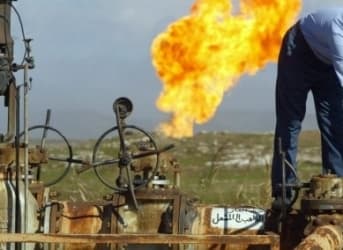If the West and Iran can sign a comprehensive agreement that leads to the removal of sanctions on Iran, how will OPEC respond to the prospect of a flood of new Iranian oil?
The oil majors are all highly interested in jumping into Iran. In Vienna for the OPEC summit this week, executives from Royal Dutch Shell, BP, and Total all expressed interest in the oil and gas reserves in Iran. Related: Market Fundamentals Make Oil Price Increase Unlikely
“Iran is a wonderful country with a fantastic resource base,” Shell’s CEO Ben van Beurden, said in an interview, according to Bloomberg. “As soon as there is legitimate opportunity, we will be looking at Iran.” He is not alone – he went on to add that “everybody” wants to go into Iran.
Of course they do. Iran is sitting on top of an estimated 157 billion barrels of oil – around 10 percent of the entire world’s oil reserves. It also has the second largest reserves of natural gas in the world. And a lot of that remains underdeveloped due to a standoff with the West that dates back decades. The rapprochement with the West over its nuclear program may change all of that.
Falling oil prices and crippling sanctions have taken their toll. For that reason, Iran is eager to put sanctions in the past and quickly ramp up oil production. Estimates vary over how fast and how significantly Iran can increase output. Iran has boasted about putting 1 million barrels per day back to work immediately after sanctions are lifted, but perhaps a more reasonable estimate is 400,000 barrels per day in the short-run.
In order to get to the next level, however, the Iranian government believes that it needs private multinationals to provide both the capital and technical expertise. The Iranian government is reportedly looking to revise the terms of oil contracts that it issued in the past in an effort to make investment more attractive. Rather than merely paying a sum to private oil companies for producing, Iran is considering doing something that it once opposed. It may allow the oil majors to take a share of production and book the reserves, which would be substantially more enticing to private companies than just a fixed fee. Related: Top 5 Solar Markets in Asia
That would certainly lead to heavier interest from the oil majors, which eventually could result in much higher production from Iran.
That begs the question, how will OPEC – which is meeting this week – accommodate a possible flood of new Iranian oil? Most analysts see no change in OPEC’s output quota this time around, keeping production unchanged at 30 million bpd. But in just a few weeks the negotiations over Iran’s nuclear program wrap up, possibly portending an end to sanctions.
If Iran adds 400,000 barrels per day in just a few months, and maybe up to 1 million barrels per day by 2016, will OPEC allow Iran to grab more of a share of the 30 million barrel-per-day pie? Setting aside Saudi Arabia’s antipathy towards its regional rival, one would be hard pressed to find any OPEC member who is willing to cede some of its share to Iran. Saudi Arabia is producing at near record levels and Iraq is doing the same. That almost certainly won’t change.
That leaves two obvious possibilities. First, OPEC increases its production target to allow for Iran to come back into the fold. That would send oil prices downward as OPEC would officially signal its intent on keeping the markets flooded.
But since altering the group’s production target requires quite a bit of consensus, the most likely outcome is no change at all. That means OPEC does nothing, leaves its output quota unchanged, and the cartel merely blows through its target. After all, there is no guarantee that Iran does free itself of sanctions, so OPEC will wait and see what happens. Related: This Dutch Innovation May Solve The Energy Storage Problem
Moreover, OPEC often glosses over the fact that it doesn’t always adhere to its production targets anyway. The cartel produced 31.5 million barrels per day in May, already well above the stated 30 million barrel per day quota. If Iran brings production back and OPEC’s output surges even farther above its stated target, so what?
ADVERTISEMENT
In any case, Iran is going to do what it needs to do, regardless of OPEC. Due to its own domestic needs, if sanctions are removed Iran will do all that it can to ramp up production as much as possible.
By Nick Cunningham Of Oilprice.com
More Top Reads From Oilprice.com:
- Do Or Die For Mexico’s Neglected Oil Sector
- Forget The Noise: Oil Prices Won’t Crash Again
- Why Has Chinese Spending On Oil Dried Up?

















